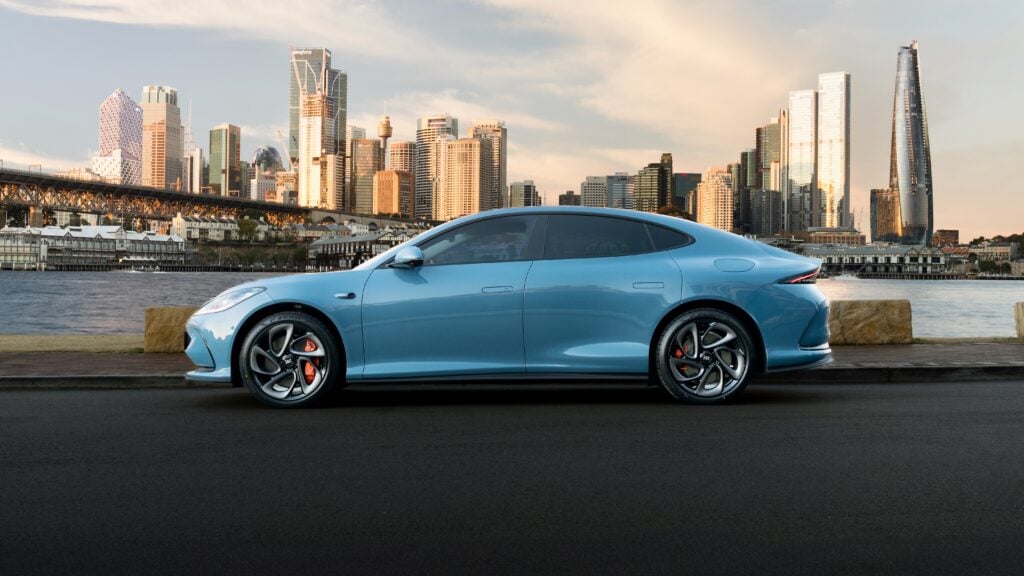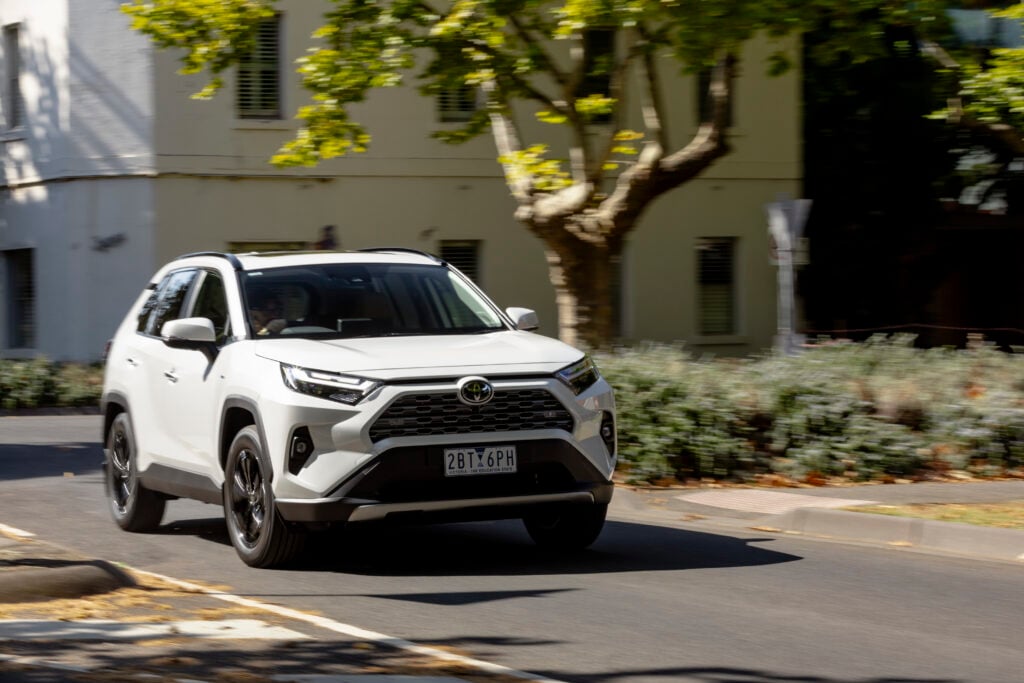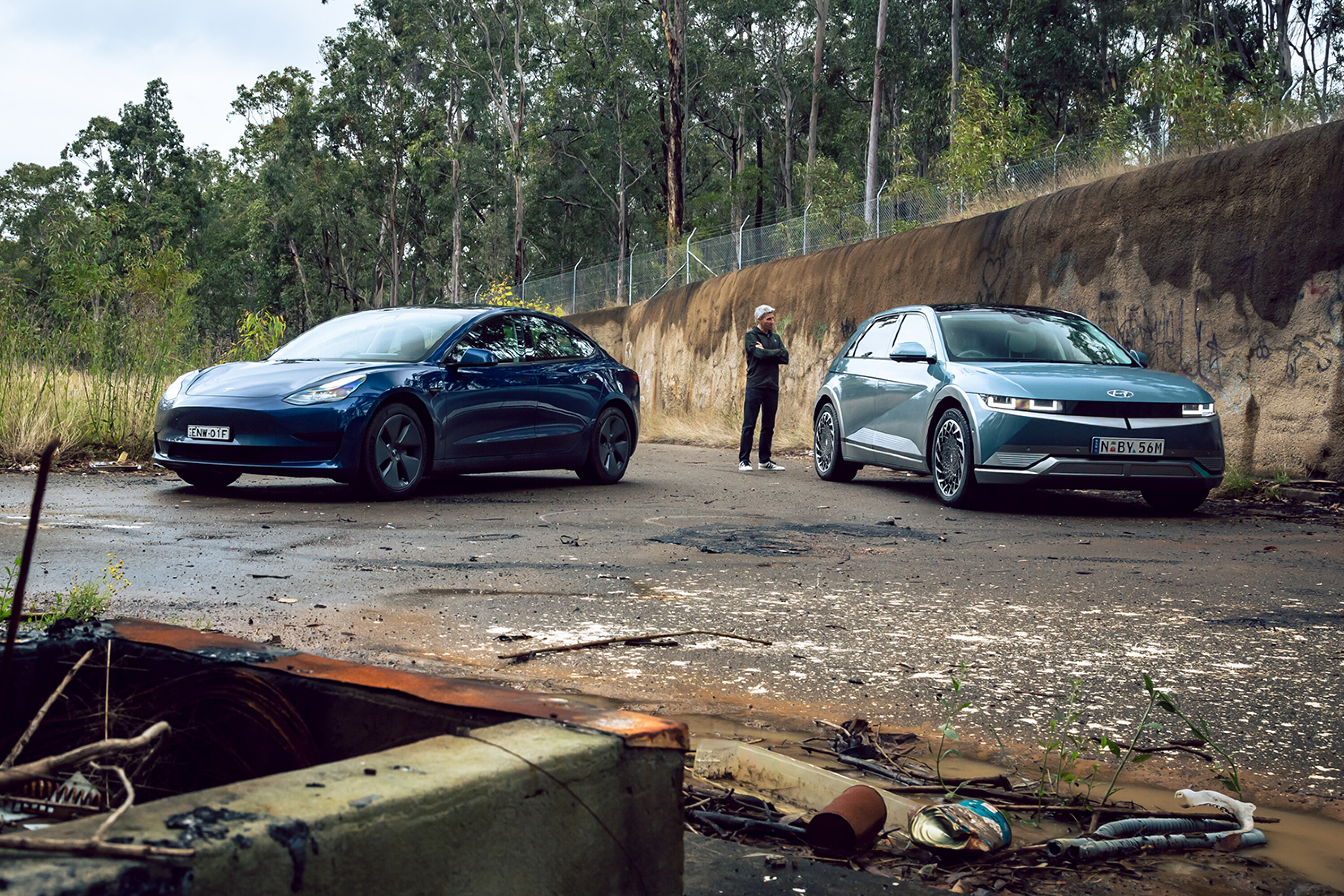
The Luxury Car Tax (LCT) is a compulsory levy that raises the price of many new vehicles in Australia, but with the right choice, electric vehicle buyers can evade it.
Snapshot
- LCT adds another cost to EVs above the set threshold
- Fuel-efficient vehicles benefit from higher threshold
- All commercial vehicles are exempt
For now – and likely for a while to come – electric cars are generally more expensive to buy than an equivalent petrol- or diesel-powered car.
After all, it’s one key perceived barrier to adoption, even though cheaper ownership costs over time will eventually recoup and surpass that price premium as you drive further.
Therefore, the LCT adds another unavoidable cost layer and can exacerbate this price hurdle – an issue that industry advocates have long called for its abolishment to no avail.
With the threshold lifted again for the latest 2023-24 financial year, which EVs dodge the LCT?
JUMP AHEAD
- What is the LCT?
- Which EVs are newly exempt?
- Full list: Every EV exempt from LCT
- Will the LCT ever go away? Increasing thresholds year-by-year
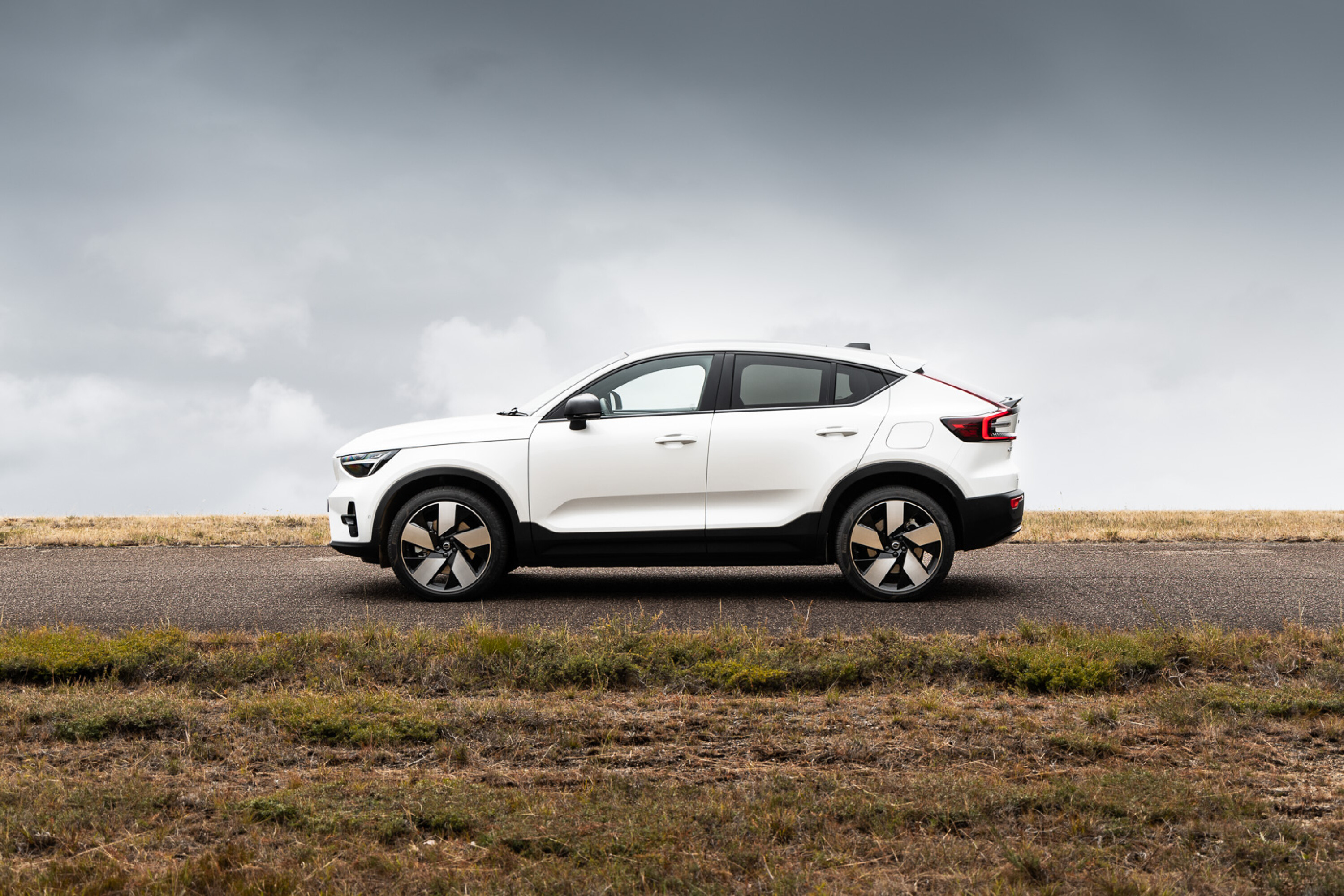
Firstly, what is the LCT?
The Luxury Car Tax is a compulsory fee to pay on a vehicle that is sold or imported, two years old or less, and above a price threshold set by the Australian Tax Office (ATO).
It is a 33 per cent tax calculated on the amount over the threshold.
EVs have some more wiggle room – being classed under a higher fuel-efficient vehicle threshold – but that also applies to any petrol- or diesel-engined model with a claimed combined fuel consumption of 7.0L/100km or less.
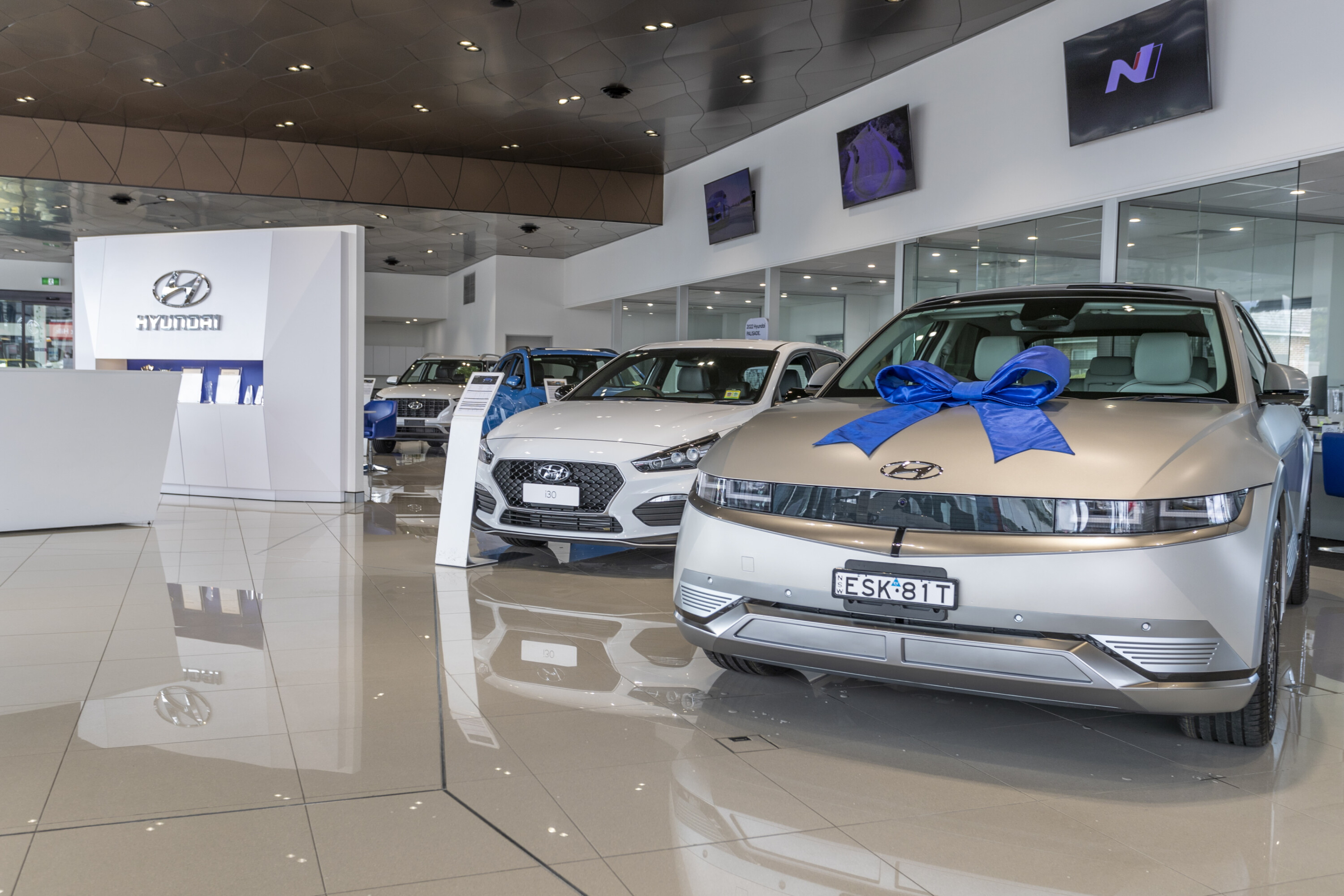
To determine whether a vehicle is subject to LCT, refer to the vehicle manufacturer’s suggested retail price (MSRP). This includes the Goods and Services Tax (GST), any options or modifications fitted (except modifications for people with a disability), and dealer delivery charges at the time of purchase.
However, the ATO does not account for mandatory ‘on-road costs’, including stamp duty, registration and compulsory third-party insurance (CTP).
Most car brands (except for Tesla) include the LCT in the listed retail price before on-road costs, usually with an asterisk point to say as much.
Additionally, all commercial vehicles designed mainly for carrying goods are exempt from the LCT, regardless of price.
After all, they’re clearly not luxury cars – a point Toyota has railed against many times regarding its large SUVs.
What is the purpose of the LCT?
Initially, the LCT was legislated by the Howard government in July 2001 to discourage Australians from buying imported prestige vehicles in favour of supporting Australian-made models from Holden, Ford and Toyota at the time.
Of course, that Australian car manufacturing industry is now mostly extinct – and the LCT now only serves as a tax revenue pool for the government. The increasing costs of new cars has also meant not all LCT-applicable models are considered ‘luxury’.
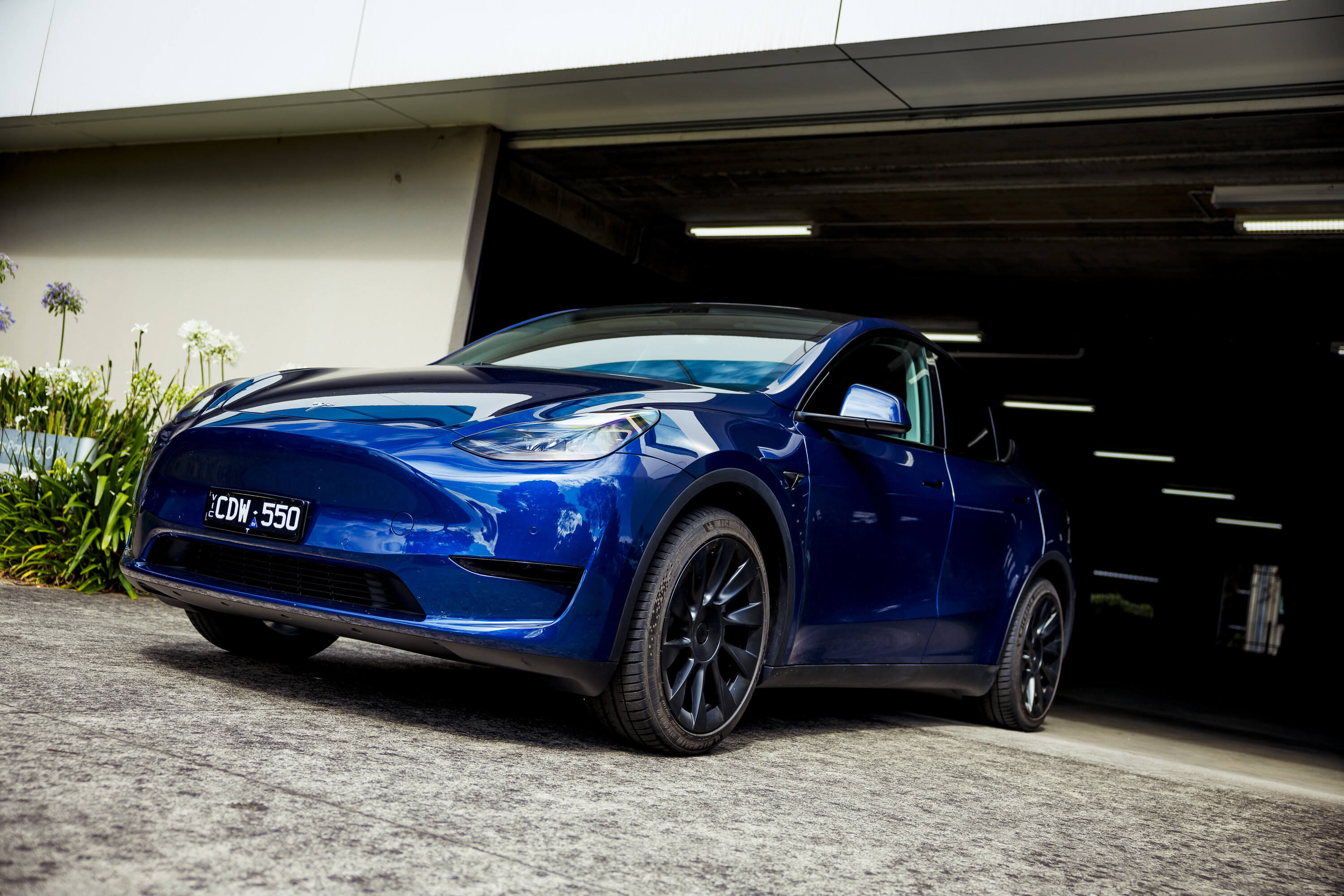
Which EVs are newly exempt from the LCT?
In the latest 2024-25 financial year (effective between July 1, 2024 to June 30, 2025), the LCT threshold for fuel-efficient vehicles has been raised to $91,387 (it’s $80,567 for non-fuel-efficient vehicles).
We’ve assumed the dealer delivery charge is $1500 to determine which models fall under the LCT threshold. This amount will vary depending on your local dealer.
The following electric car models now fall under the threshold.
- Audi Q4 45 e-Tron and Sportback e-Tron
- Hyundai Ioniq 5 Epiq N-Line AWD
- BMW iX3 M Sport RWD
- Mercedes-Benz EQB 250+
- Ford e-Transit
- Ford Mustang Mach-E Premium RWD
- Subaru Solterra
- Toyota bZ4X
- Jeep Avenger
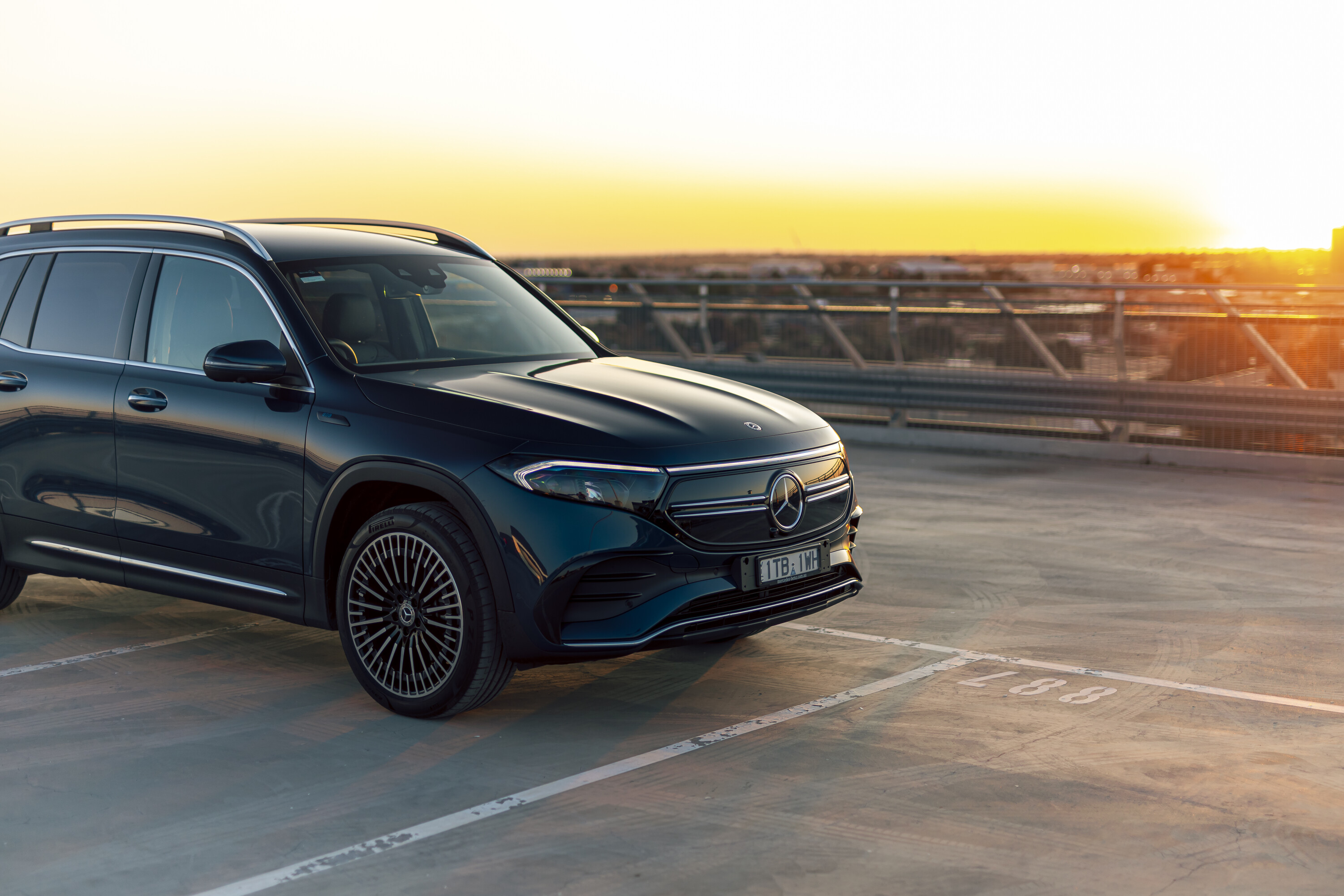
Every LCT exempt EV model in the 2024-25 financial year
The following prices are accurate as at publication but subject to change. The EV market is a highly fluid one, but to bring some stability to the list we don’t list limited-time offers.
We’ve assumed the dealer delivery charge is $1500.
LCT exemption applies to all model variants, unless otherwise stated. All commercial vehicles are also exempt.
| Model | Price range (before on-road costs) |
|---|---|
| GWM Ora | $35,990-$43,990 |
| BYD Dolphin | $38,890-$44,990 |
| MG 4 | $39,990-$59,990 |
| MG ZS EV | $39,990-$49,990 |
| BYD Atto 3 | $44,499-$47,499 |
| BYD Seal | $49,888-$68,798 |
| Jeep Avenger | $49,990-$60,990 |
| Nissan Leaf | $50,990-$61,490 |
| Fiat 500e | $52,500 |
| Hyundai Kona Electric | $54,000-$71,000 |
| Tesla Model 3 | $54,900-$80,900 |
| Renault Megane E-Tech | $54,990 |
| Tesla Model Y | $55,900-$82,900 |
| Cupra Born | $59,990 |
| Peugeot E-2008 | $59,990 |
| Peugeot E-Partner | $59,990 |
| Volvo EX30 | $59,990-$69,990 |
| Abarth 500e Scorpionissima | $60,500 |
| Renault Kangoo E-Tech | $61,990-$63,990 |
| Mini Cooper SE Electric | $64,900 |
| Mini Countryman E | $64,990-$77,990 |
| Ford Mustang Mach-E (Select and Premium only) | $64,990-$79,990 |
| Toyota bZ4X | $66,000-$74,900 |
| Hyundai Ioniq 6 | $66,500-$86,500 |
| Kia Niro EV | $66,590-$72,360 |
| LDV eDeliver 7 | $67,358-$73,674 |
| Polestar 2 | $67,400-$85,400 |
| Hyundai Ioniq 5 | $69,800-$91,300 |
| Subaru Solterra | $69,990-$76,990 |
| Kia EV6 (Air, GT-Line RWD/AWD only) | $72,590-$87,590 |
| Volvo XC40 Recharge | $76,990-$85,990 |
| BMW iX1 | $78,900-$84,900 |
| Volvo C40 Recharge | $78,990-$87,990 |
| Lexus UX300e | $80,720-$88,190 |
| Polestar 4 (long range RWD only) | $81,500 |
| Mercedes-Benz EQA (250 only) | $82,300 |
| BMW iX2 | $82,900-85,700 |
| Mercedes-Benz EQB 250+ | $84,900 |
| Audi Q4 45 e-Tron | $88,300 |
| BMW ix3 (M Sport RWD only) | $89,100 |
| Ford E-Transit | $89,990 |

Will the LCT ever go away for EVs?
Industry lobbyists continue to call for the abolishment of the LCT, particularly for electric vehicles to lower the price tag barrier. But, it remains off the agenda for the current sitting Australian Government.
Lifting or removing the threshold for European-made EVs was mooted again amid recent free trade agreement negotiations with the European Union – which has long criticised the LCT – but, despite multiple glimpses, it hasn’t resulted in any policy change yet.
However, the set LCT threshold has been steadily rising higher in the past few financial years as a growing number of Australians buy EVs.
For now, the only silver lining is: more models are becoming LCT exempt and those above the threshold are less impacted (since the LCT is calculated on the amount above the threshold).
LCT threshold by the years
| Financial year | Fuel efficient vehicles | Other vehicles |
|---|---|---|
| 2024-25 | $91,387 | $80,567 |
| 2023-24 | $89,332 | $76,950 |
| 2022-23 | $84,916 | $71,849 |
| 2021-22 | $79,659 | $69,152 |
| 2020-21 | $77,565 | $68,740 |
| 2019-20 | $75,526 | $67,525 |
| 2018-19 | $75,526 | $66,331 |
| 2017-18 | $75,526 | $65,094 |
| 2016-17 | $75,526 | $64,132 |
| 2015-16 | $75,375 | $63,184 |
| 2014-15 | $75,375 | $61,884 |
| 2013-14 | $75,375 | $60,316 |
| 2012-13 | $75,375 | $59,133 |
| 2011-12 | $75,375 | $57,466 |
| 2010-11 | $75,375 | $57,466 |
We recommend
-
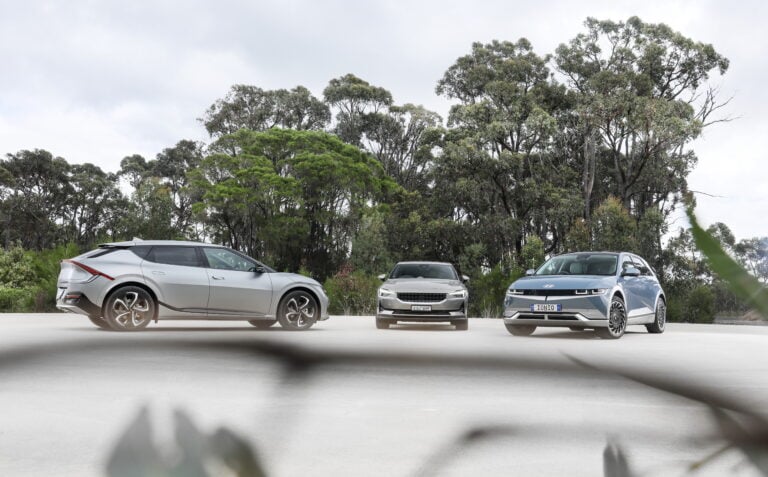 News
NewsLuxury Car Tax threshold increased for 2023-24
LCT threshold requirements have been lifted again for another financial year
-
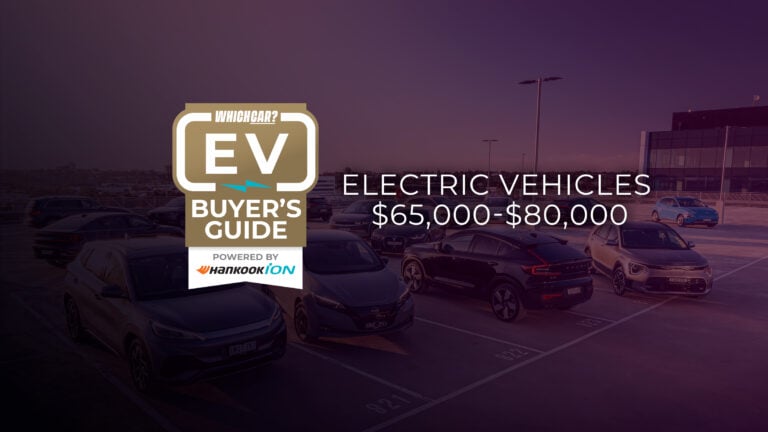 Comparisons
ComparisonsBest Electric Cars, $65k-80k: Australia's premium EVs tested
In part two of our three price-based EV buying guides, we compare Australia's electric cars priced between $65,000 and $80,000
-
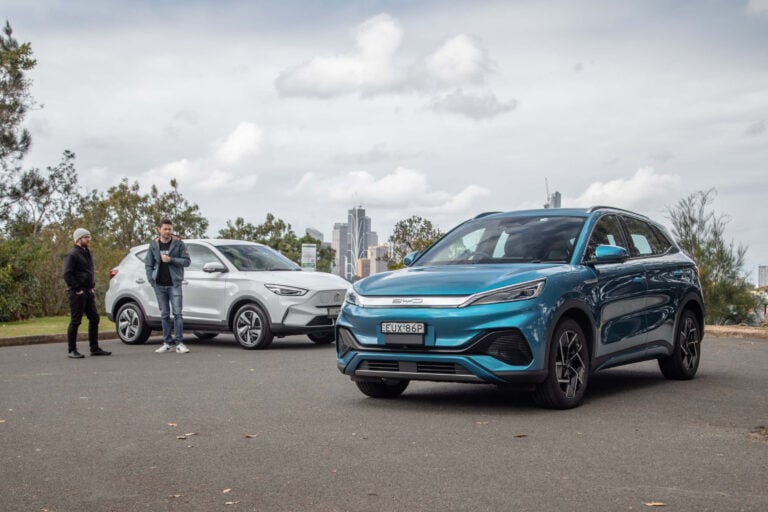 Advice
AdviceIs it time to buy an electric car? Crunching the numbers!
Is the tide turning for EVs? We've crunched the numbers on how much you could save by making the electric switch

